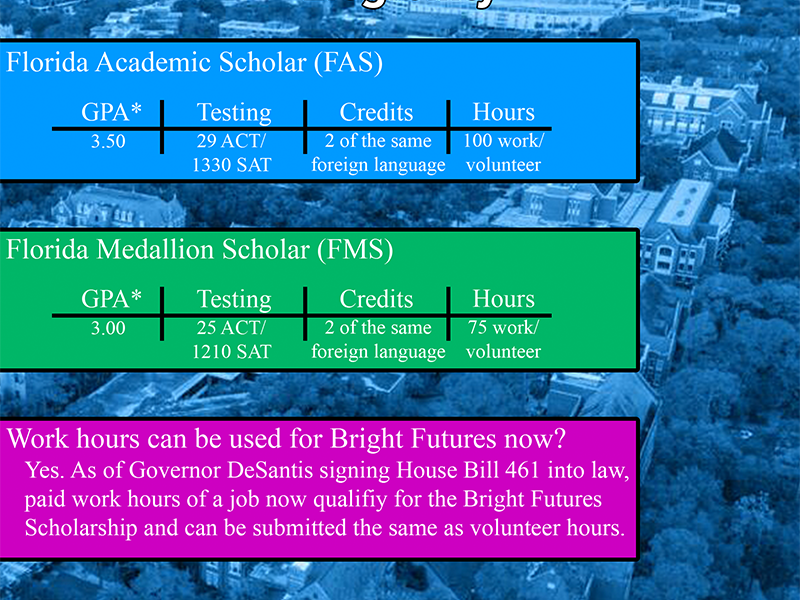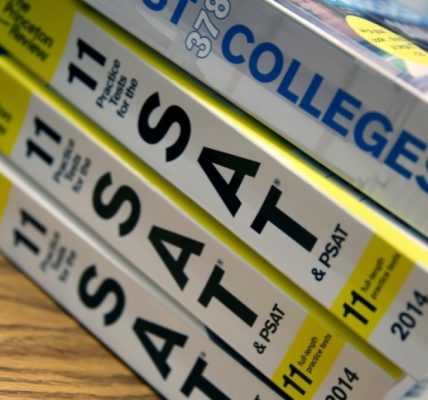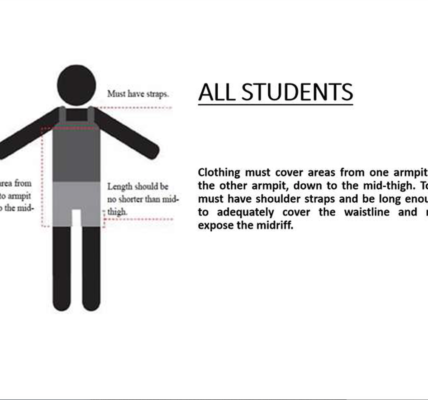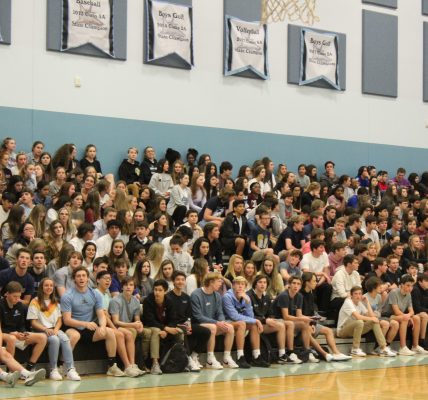By James Grossmann
One of Florida’s most defining features in education is the lottery-funded Bright Futures Scholarship. The scholarship grants incoming college students financial aid towards their tuition and other costs given they satisfy certain academic and community service requirements during their high school career. The scholarship has existed since 1997 and has provided millions to over 725,000 students since then – all done through lottery funding. Recently, House Bill 461, signed into law by Governor Ron DeSantis on Jun. 27, 2022, modified a key requirement of the scholarship, now allowing paid work hours in place of community service hours.
Initially, students would had to have obtained at least 75 community service hours for the scholarship’s lower tier. However, work hours are now interchangeable with community service hours, allowing students to work a paid job while contributing to obtaining the Bright Futures Scholarship. Governor DeSantis reasoned that this change will enable students of low-income families to have increased access to college education, saying that “Florida students should not lose the opportunity to receive a Bright Futures Scholarship because they have to work to help their families make ends meet.”
With the requirements now updated in a significant way, some students may be confused as to what the total requirements are to obtain the scholarship. None of the core academic requirements have been modified, so students will still need to meet the usual credit, GPA, and testing requirements of the scholarship. It is important to note that there are two primary divisions of the scholarship that provide different grants.
The first type of the scholarship is the Florida Medallion Scholar (FMS) award. This award requires students to obtain a 3.0 weighted GPA or above, meet all credit requirements for graduation (plus two sequential foreign language credits of the same language), a composite score of 25 on the ACT or a 1210 on the SAT, and 75 or more community service/paid work hours. GPA is calculated based on the typical 16 core classes alone, and honors and Advanced Placement (AP) courses will receive a 0.25 boost during the calculations.
The next type of scholarship is the Florida Academic Scholar (FAS) award. The requirements are similar to the FMS overall, but are generally more rigorous. To obtain the award, a student must meet the same credit requirements as the FMS, but must also have a 3.5 GPA, a composite score of 29 on the ACT or a 1330 on the SAT, and 100 community service/paid work hours. GPA is calculated in the same manner as the FMS.
The amount the scholarship awards is highly variable based on the institution the student is attending. For in-state public universities, the FMS and FAS awards will cover 75 and 100 percent of the student’s tuition respectively. Students will also receive an amount of money to aid in covering other fees, such as technology and textbooks. For in-state private universities, students will receive a comparable amount of the award based on the fees put out by the university to the state. Unfortunately, students planning on attending universities out-of-state will not receive any aid from the scholarship, as it is restricted to in-state universities only.
As students of Ponte Vedra High School (PVHS) complete their community service or paid work hours, they can turn in logs of their hours in the dean’s reception. The guidelines for submitting paid work hours will not differ significantly from those of community service hours. According to the text of House Bill 461, for both community service and paid work hours, students will need to have this documented in writing, and the document must be signed by the student, the student’s parent or guardian, and a representative of the organization for which the student performed the volunteer service or paid work. Then, the typical required documents can be turned into PVHS to be logged.
The Bright Futures Scholarship has enabled thousands of Florida students to obtain increased access to in-state universities. While the scholarship is not a universal solution to the financial woes of many college students, within Florida and elsewhere, Florida students will likely appreciate the aid of the scholarship. The new updates to the scholarship will likely further enable Florida students to have increased access to postsecondary education, helping bridge the gap between family income and career.





